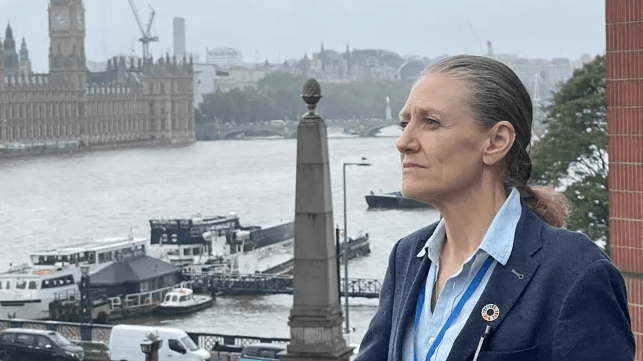Interview: ZESTAs' Madadh MacLaine on the Future of Green Propulsion

The maritime industry is in need of technological solutions to power the green transition, from battery-electric to hydrogen to wind-assisted propulsion. Dozens of manufacturers and startups are active in this space, and many belong to the Zero Emissions Ship Technology Association (ZESTAs), the industry body for green-propulsion companies. To learn more about the best options for green power - and how the debate over policy is shaping up - TME recently caught up with Madadh MacLaine, CEO of the engineering consultancy ZEM Tech and Secretary General of ZESTAs.
What changes have you seen in green propulsion in the last few years, and what is the sector's trajectory today?
Well, as an example, I've been participating in the Electric and Hybrid Marine Expo in Amsterdam since 2016, and I was the first person to speak about hydrogen at this event. At the time, I recall people thinking that hydrogen was way out there, and the focus was on diesel electric hybrid propulsion systems. Today, hydrogen is a major area of focus, as well as the massive increase in the size and power density of battery-electric energy storage systems. It used to be that hydrogen fuel cell systems were in the tens to hundreds of kilowatts, and a 300-kilowatt system was considered large. The largest are now measured in the megawatts, and one of our members has two projects going that have 6.5-megawatt systems.
In short, we're seeing huge changes. And I honestly think that these changes are becoming exponential.
Can you tell us about the commercial prospects of these green-power technologies?
Well, there are already situations where it is more economically viable to go with a fully electric vessel, particularly where there is access to abundant renewable energy for charging the vessel. We've seen that in a number of cases where the vessel operator also owns their own renewable energy generation. By going electric, they've just removed fuel from their bottom line. The capex might be higher, but they drastically reduce their opex.
We're seeing success with wind propulsion as well, because again, with wind assist you're removing fuel from the bottom line.
Of course, with hydrogen technology, we're not in the same position yet. It's no secret that for this to move forward, we require stricter regulations to push people over into these technologies. It's not like knocking off a percent here and there, which is what we're seeing at this point in time from the CII, but drastic reductions.
You know, we have the technology to get us all the way. Some people are calling for absolute zero emissions by 2040, and the technology's there to do it. But we will have to find the right regulatory balance, especially for developing countries. And my personal hope is that we can find that balance using mechanisms in a market-based measure (carbon levy).
What kind of timeline do you expect for getting to an agreement?
I believe that we can have a solid market-based measure document worked out at MEPC 81, which can then be agreed at MEPC 82. I think by the time we get to MEPC 82, we will have seen some significant impacts of climate change coming through, and member states will realize that actually it is to their benefit to move quickly. Even some of the member states that have wanted to go slow on climate action may move toward deeper compromises.
Can this be done incrementally, with "stepping-stone" technologies?
The only way we're going to eliminate the pollution that is causing climate impacts is by reducing our emissions to absolute zero.

that matters most
Get the latest maritime news delivered to your inbox daily.
Incremental regulations are, in a way, forcing shipowners into half measures. We need to be very careful about our regulations so that we aren't pushing shipowners down the wrong pathway. They've got to comply with the rules in the most affordable way for themselves. There are investments going into fuels and technologies that potentially will make emissions worse if you look at greenhouse gases other than CO2, like N2O and methane.
Our perspective on this is that there should be more focus on smaller vessels with simpler operating profiles, which would support bringing absolute zero emission technologies up to the commercial readiness level and proliferated into the market. From that point, we can increase size and eventually all vessels can make that transition to absolute zero emission.
